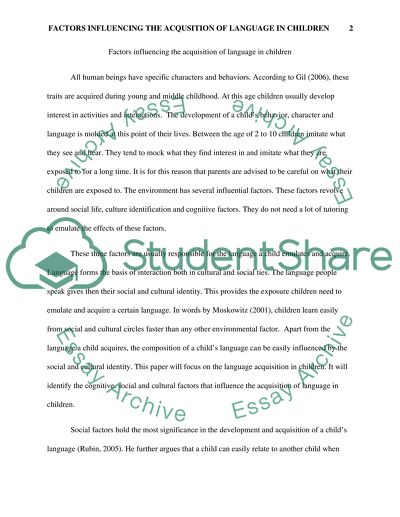Cite this document
(“Factors Influencing the Acquisition of Languagein Children Essay”, n.d.)
Factors Influencing the Acquisition of Languagein Children Essay. Retrieved from https://studentshare.org/psychology/1454106-explain-what-are-the-cognitivesocialand-cultural
Factors Influencing the Acquisition of Languagein Children Essay. Retrieved from https://studentshare.org/psychology/1454106-explain-what-are-the-cognitivesocialand-cultural
(Factors Influencing the Acquisition of Languagein Children Essay)
Factors Influencing the Acquisition of Languagein Children Essay. https://studentshare.org/psychology/1454106-explain-what-are-the-cognitivesocialand-cultural.
Factors Influencing the Acquisition of Languagein Children Essay. https://studentshare.org/psychology/1454106-explain-what-are-the-cognitivesocialand-cultural.
“Factors Influencing the Acquisition of Languagein Children Essay”, n.d. https://studentshare.org/psychology/1454106-explain-what-are-the-cognitivesocialand-cultural.


